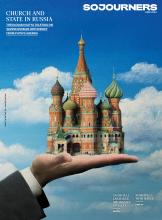U.S. REPRESENTATIVE John Lewis’ more than 60 years of extraordinary activism unfold in the 2020 documentary John Lewis: Good Trouble. He took his stand on the most critical issues of our times — voting rights, civil rights, health care, and more. Lewis knew firsthand that many systems and practices in our country were undemocratic, designed to benefit the few and to increasingly disempower the many. He refused to let democracy slide backward or normalize the status quo, and he called for positive, creative disruption of bad systems. Lewis’ call for people to engage in “good trouble” used the power of nonviolent disruption to leverage transformative change.
“Disruption” is a buzzword these days in the world of business and technology. Individuals at the forefront of “disruptive technologies” are often hailed as visionaries, regardless of the ends to which such disruptions are employed. In many ecclesial traditions, emphasis is placed on conserving church structures, processes, and hierarchies. This is the nature of institutions that seek to preserve traditions beyond a single generation. However, too much of this runs the risk of ossifying the tradition, such that the next generation sees no value or life in the institution. Ecclesial traditions also need prophetic energy that embraces the power of disruption to create positive change.
Disruption is complex. The lectionary texts this month invite us to see the tensions — while there are things that need to be disrupted, there are others that need to be preserved. These texts present Jesus as a disrupter of oppressive systems but also as a preserver of calm amid destructive storms. In 2024, nearly half the world’s population will vote in a national election — including the United States. As Christians, we are called to be intentional about disrupting oppressive systems and to be vigilant about preserving democratic systems that protect the most vulnerable and secure peace and justice for all.
Read the Full Article

